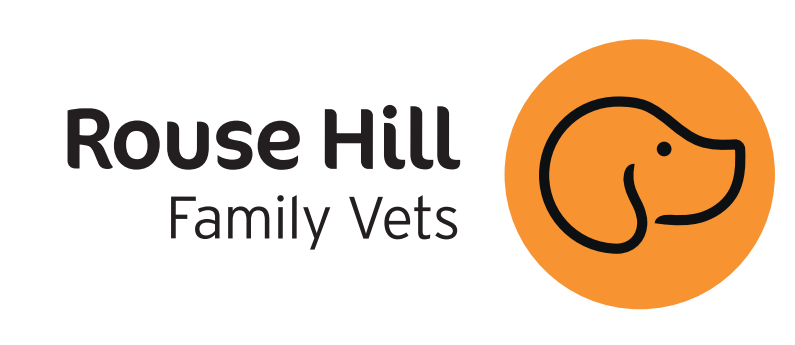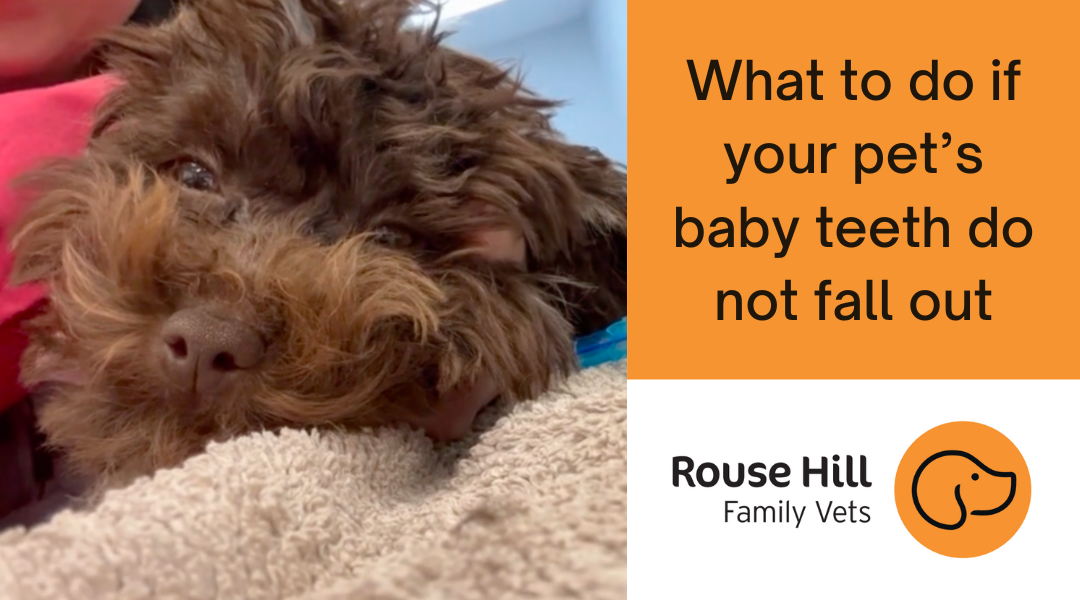Sometimes, these deciduous teeth do not fall out and the adult teeth erupt next to the baby teeth. We call this retained deciduous teeth (or persistent deciduous teeth). When these baby teeth are retained it causes problems with overcrowding of the mouth, malocclusions (where teeth do not align properly) and increase risk of periodontal disease where additional plaque and tartar form between the crowded teeth leading to gingivitis, infection and pain. Malocclusions cause your pets bite to be abnormal causing pain, discomfort and further dental problems.
So what do we do when our pet’s baby teeth just don’t want to fall out?
If the adult teeth have erupted the baby teeth should have fallen out, so if they are both present at your pet’s desexing procedure we recommend removing them at this point. If we have discussed older age desexing, we may recommend removing the retained deciduous teeth at a separate procedure before desexing to avoid the development of periodontal disease (gingivitis/infection) around the permanent adult tooth.
We will take x-rays to see what the roots are doing below the gum line of both the baby and adult tooth and then we will extract the baby teeth. Your pet will be provided with dental nerve blocks and take home pain relief. Most pet’s show little or no discomfort from the procedure. We will recommend a soft diet for a few days, then they can go back to normal food with their full mouth of healthy adult teeth.
Check out Suki who came in for her desexing procedure, we knew she had a few deciduous teeth that required extraction. When she was sedated and we could examine her mouth properly, we were surprised to find she had 10 baby teeth that were retained, we removed all 10 and she will now have a well aligned jaw and it will hopefully help keep those adult teeth healthier for longer.

